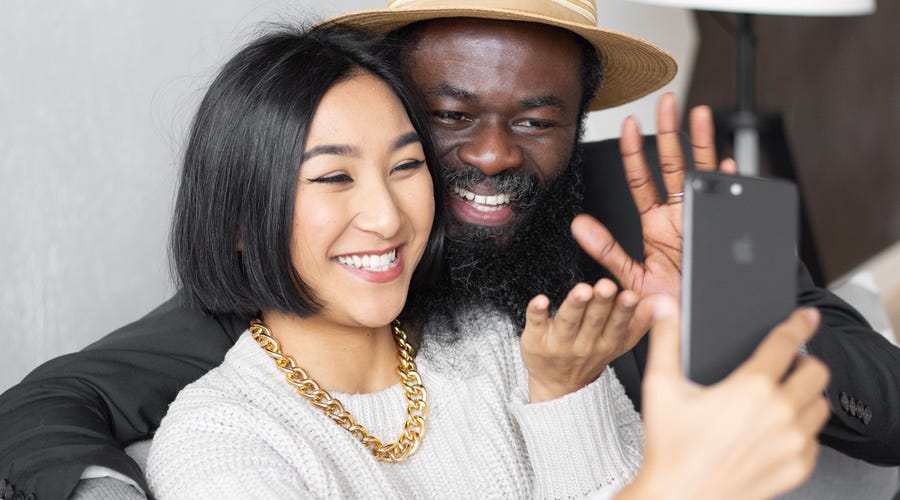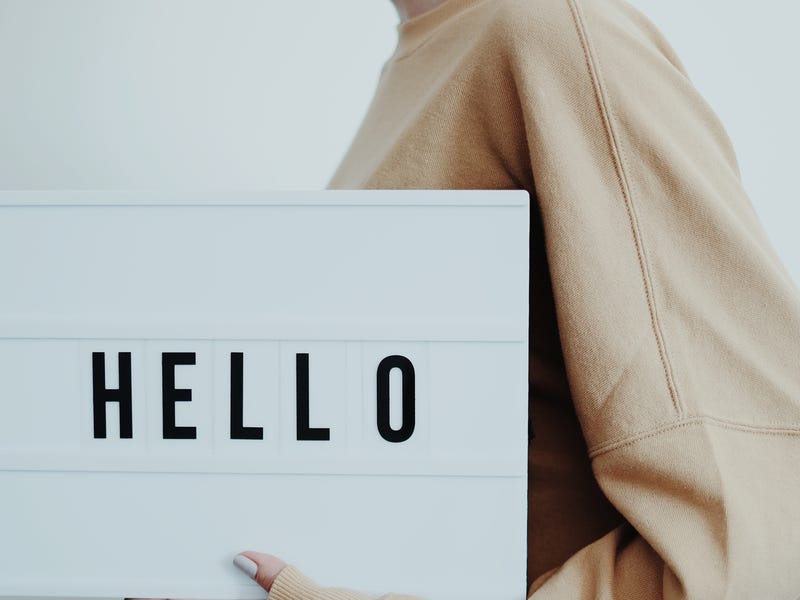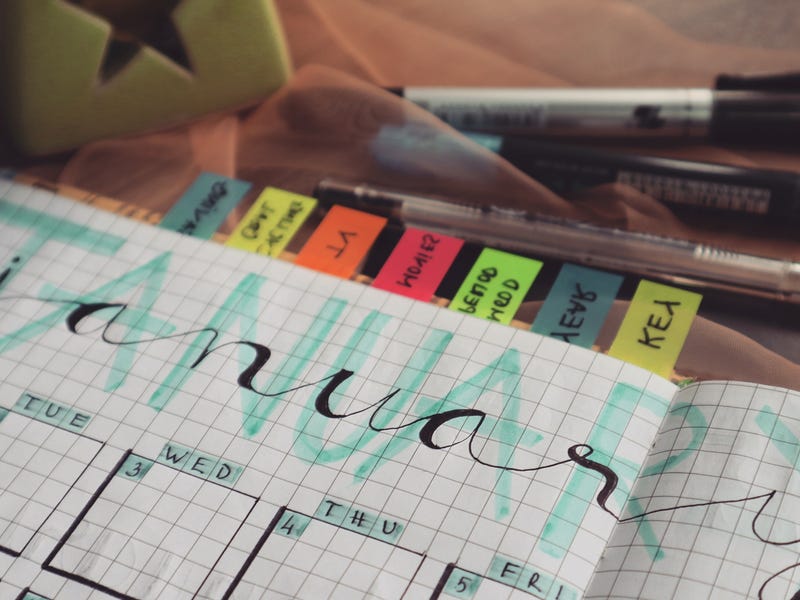
81 cool, common and quirky ways to say goodbye in English
Author: Karolina Assi
Saying “hi” and “goodbye” is the first thing you learn when studying any foreign language. But have you ever stopped to think about why it’s important to learn different ways to say goodbye in English?
It's not just a matter of polite manners, but rather a matter of language culture. One expression may be reserved for family and close friends, while another could be used with someone you met only once or twice.
Just like hello in English, saying goodbye is a very important part of communication, and there are many different ways to say it. While there are many creative and funny ways to say goodbye in English, it's important to know the right one to use in different situations and contexts. You don't want to offend someone by being informal when you should be formal or visa-versa.
To help you avoid awkward situations, we’ve prepared this list of 80+ ways to say goodbye and additional ways to say goodbye without actually saying goodbye (in case you need a sneaky exit strategy).
And if you want to master how to say goodbye in over 100 different languages, we've got a blog for that too, of course.
Firstly, how do you actually say “goodbye” and “bye” in English?
The most common way to say goodbye in English is simply “goodbye” (pronounced: gud-bai). This is a neutral way to end a conversation, a phone call, or when you’re exiting a place. The good news is that you can never go wrong when using this word to say goodbye, especially in formal situations. You can say it to your boss at the office or your overly polite aunt at a family dinner.
You’ve probably also heard English speakers use expressions such as “bye” or “bye-bye,” which are both informal abbreviations of “goodbye.” These two expressions are more suited for casual settings. You can use either one of them to end a phone conversation with your talkative girlfriend or say goodbye to your 7-year-old nephew after playing Minecraft with him for three hours.
80+ other ways to say goodbye without saying goodbye
“Goodbye,” “bye,” or “bye-bye” aren’t the only ways to say goodbye in English. In fact, if you always use one of these three expressions to end all of your conversations in English, they’ll seem unnatural and, frankly, quite strange!
So, help us help you avoid socially awkward conversations and read this list of ways to say goodbye without saying goodbye.
How to say goodbye in English formally or in a business setting
Knowing what expressions to use in formal situations is one of the most important things to learn, not only when it comes to vocabulary but also in terms of culture. In some English speaking countries, politeness is fundamental, and people can be extremely polite (if you’ve ever been to England, you know what we mean).
For example, a simple thank you in English is enough to end the interaction when leaving a supermarket. But in case you’re leaving a business meeting, you might need to have a few useful expressions up your sleeve to make a lasting impression.

So, let’s take a look at some ways to say goodbye in English formally.
| English | Pronunciation | Context |
|---|---|---|
| Have a nice weekend! | / həv ə ˈnaɪs ˈwiːˌkend / | A universal way to wish someone a good day. |
| Have a nice day! | / həv ə ˈnaɪs ˈdeɪ / | A universal way to wish someone a good day. |
| Have a great rest of your day! | / həv ə ˌgreɪt ˈrest əv jər ˈdeɪ / | Same as above. |
| I look forward to our next meeting. | / ˈaɪ ˈlʊk ˈfɔːrwərd tə ˈaʊər ˈnekst ˈmiːtɪŋ / | You can use it when you have another meeting planned with this person. |
| It was a pleasure seeing you/talking to you. | / ˈɪt wəz ə ˈpleʒə ˈsiːɪŋ ju ˈtɔ:kɪŋ tə ju / | To affirm how pleased you were to see them/talk to them after a long time. |
| It was a pleasure speaking with you. | / ˈɪt wəz ə ˈpleʒə ˈspi:kɪŋ wɪθ ju / | A very customer-oriented way to say goodbye. |
| Hope you have a wonderful day/evening/weekend. | / hoʊp ju həv ə ˈwʌndərfəl ˈdeɪ ˈiːvn̩ɪŋ ˈwiːˌkend / | To politely wish someone a nice time after your meeting/conversation. |
| Take care. | / ˈteɪk ˈker / | A common expression in formal settings; it means you like someone and wish them well. |
| Speak to you then. | / ˈspiːk tə ju ˈðen / | You can use it if you have another conversation planned with this person soon |
| I’ll see you then. | / ˈaɪl ˈsi: ju ˈðen / | You can say this to someone who has scheduled an appointment with you. |
| Good night. | / gʊ ˈnaɪt / | This is a perfect goodbye for late nights in the office! |
How to say goodbye in English casually or with friends
Saying goodbye in an overly formal way to your friends would probably cause quite an awkward situation. They might even think you’re being sarcastic or trying to show off!
So, here are a few practical ways to say goodbye casually for after-work parties and Sunday family dinners.

| English | Pronunciation | Context |
|---|---|---|
| See you/See you soon/See you later. | / ˈsi: ju ˈsi: ju ˈsuːn ˈsi: ju ˈleɪtər / | You can use it if you plan on seeing the person again, but don’t know when. |
| See you around. | / ˈsi: ju əˈraʊnd / | Similar to the ones above. |
| See ya. | / ˈsi: ˈjɑː / | A more casual way to say “see you.” |
| I’ve got to get going. | / aɪv ˈɡɑːt tə ˈget ˈɡoʊɪŋ / | Use this to indicate you have to leave. |
| Gotta go. | / ˈɡɑːtə ˈɡoʊ / | A more casual and shorter way to say “I’ve got to get going”. |
| I’m heading off. | / ˈaɪm ˈhedɪŋ ɔːf / | A casual way to say you’re leaving, for example, from the bar or your friend’s house. |
| Talk to you later. | / ˈtɔːk tə ju ˈleɪtər / | Similar to the ones above. |
| Good seeing you! | / gʊ ˈsiːɪŋ ju / | This is a casual version of “it was nice to see you.” |
| This was fun! | / ðɪs wəz ˈfən / | Use this to let someone you had a great time with them |
| Bye for now. | / ˈbaɪ fər ˈnaʊ / | You can use it when you know you’ll speak to this person again very soon |
| Don’t be a stranger. | / doʊnt bi ə ˈstreɪndʒər / | A fun way to let someone know you want them to keep in touch |
| Keep in touch. | / ˈkiːp ɪn ˈtətʃ / | Use this to let someone know you want them to keep in touch |
| Have fun! | / həv ˈfən / | You can use it when someone ends a conversation with you to go do something fun |
| Get well soon! | / ˈget ˈwel ˈsuːn / | This is only to be used when ending a conversation with someone who isn’t feeling well |
| Speak to you then. | / ˈspiːk tə ju ˈðen / | You can use it if you have another conversation planned with this person soon |
| Until Monday/Friday/next week. | / ʌnˈtɪl ˌmʌndi ˌfraɪdi ˈnekst ˈwiːk / | Use this if you know when you’ll see the person again. |
| Have a good one! | / həv ə gʊ wʌn / | This one is British, and it’s used to wish someone a good time |
| ‘night/nighty night | / naɪt ˈnaɪtiː ˈnaɪt / | To say good night in a more friendly and casual way |
| Ciao. | / ciao / | This one is technically not English. It’s Italian. |
| Adios. | / ˌɑːdiˈos / | Not English either, but this doesn’t stop English speakers from using it! |
| Take care. | / ˈteɪk ˈker / | Use this to let someone know you want them to be safe while they’re gone |
| Drive safe. | / ˈdraɪv ˈseɪf / | If the person leaving will be driving, you can say this to let them know you want them to drive safely |
| Safe travels! | / seɪf ˈtrævl̩z / | You can say this to someone who will be traveling |
| Have a safe trip/flight. | / həv ə seɪf ˈtrɪp ˈflaɪt / | Same as above |
| Farewell. | / ˌfeˈrwel / | This is an outdated way to say goodbye, but it’s still in use. Use this only if you won’t see someone for a very long time. |
| So long. | / soʊ ˈlɔːŋ / | Same as above |
How to say goodbye in slang
If you need to use an even more casual expression, or you’re looking to understand your friend’s 16-year-old son, you’ll need to get familiar with some phrases from English slang. And speaking of slang expressions, you can learn a whole heap of American slang expressions for everyday use here.
Here are 10+ ways to say goodbye in slang.

| English | Pronunciation | Context |
|---|---|---|
| Laters. | / laters / | A casual way to say “see you later” |
| Gotta bounce. | / ˈɡɑːtə ˈbaʊns / | This means “I need to go” in English slang |
| I’m out! I’m outta here! | ˈaɪm ˈaʊt/ˈaɪm ˈuːtə hɪər/ | This means “I’m leaving” in English slang |
| Peace out!/Peace! | / ˈpi:s ˈaʊt / ˈpiːs / | This means “peace be with you” in street and hip-hop slang. |
| Catch you later! | / ˈkætʃ ju ˈleɪtər / | A casual way to say “see you later” |
| Smell you later! | / ˈsmel ju ˈleɪtər / | Same as above |
| Cheerio! | / ˈtʃɪrioʊ / | This one is old British slang. It’s a fun way to say bye! |
| TTFN (Ta-ta for now) | /ta-ta fər ˈnaʊ / | This one is old British slang. Fun fact: This is how Tigger from Winnie the Pooh says goodbye to his friends! |
| Ta-ra! | / ta-ra / | Northern British slang for “bye.” |
| Take it easy! | / ˈteɪk ˈɪt ˈiːzi / | This is a laid-back goodbye which means that you wish someone well. |
| I gotta go, bye! | / ˈaɪ ˈɡɑːtə ˈɡoʊ baɪ / | This can be used if you need to end a conversation abruptly. |
| I gotta hit the road! | / ˈaɪ ˈɡɑːtə ˌhɪt ðə roʊd / | This is a slang version of “I’ve got to go.” |
| Take it sleazy! | / ˈteɪk ˈɪt sˈliːzi / | If you’ve seen The Good Place, you’ll know. |
| Bye, Felicia! | / ˈbaɪ fəˈliːʃə / | It’s a famous Internet way to end a conversation with someone you disagree with or an internet troll. It’s considered rude though, so use it at your own risk! |
How to say goodbye on the phone
Saying goodbye on the phone is slightly different than when you’re leaving the office at the end of your workday or excusing yourself from a family dinner.
Here are a few phrases you can use to end a phone conversation.

| English | Pronunciation | Context |
|---|---|---|
| Nice chatting with you. | / ˈnaɪs ˈtʃætɪŋ wɪθ ju / | A polite way to express you had a nice time talking to this person. |
| Talk to you soon. | / ˈtɔːk tə ju ˈsuːn / | Use this if you plan on talking to someone (very) soon. |
| I’ll call you later. | / ˈaɪl ˈkɒl ju ˈleɪtər / | Use this if you plan on calling someone later. |
| I gotta go, bye! | / ˈaɪ ˈɡɑːtə ˈɡoʊ baɪ / | This can be used if you need to end a conversation abruptly. |
How to say goodbye in an email
Do you know this moment when you hover over the “send” button, wondering if you’ve ended your email appropriately? Emails are an important form of communication, especially in formal settings. Committing an email etiquette faux-pas can have huge consequences!
This is why it’s essential to learn how to end an email for every occasion. But don’t worry! We’ve got you covered with our list of 12 phrases you can use to say goodbye in an email.

| Farewell | Pronunciation | Context |
|---|---|---|
| Regards. | / rɪˈɡɑːrdz / | A common, formal, and positive way to end an email. |
| Best regards/Kind regards/Warm regards. | / best rɪˈɡɑːrdz/ kaɪnd rɪˈɡɑːrdz/ wɔ:m rɪˈɡɑːrdz / | A slightly less formal way to end an email in a positive tone. |
| Speak to you soon. | / ˈspiːk tə ju ˈsuːn / | A semi-formal way to end an email when you expect to speak to the recipient soon. |
| Looking forward to your reply. | / ˈlʊkɪŋ ˈfɔːrwərd tə jər rəˈplaɪ / | A semi-formal way to end an email indicating that you’re waiting for their reply. |
| Thank you/Thanks. | / θæŋk ju ˈθæŋks / | You can end your email with one of these if you’re expressing gratitude or asking for something in the email. |
| Cheers. | / ˈtʃɪrz / | A lighthearted way to end an email to someone you’re familiar with. Mostly used in British English. |
| Best/Best wishes. | / best /best ˈwɪʃəz / | A semi-formal way to end an email. It means that you wish your recipient all the best! |
| Yours truly. | / ˈjʊrz ˈtruːli / | Best for informal emails to friends and family. |
| Sincerely/Yours sincerely. | / ˌsɪnˈsɪrli/ ˈjʊrz ˌsɪnˈsɪrli / | A common and formal way to end an email if you don’t know your recipient. |
| Yours faithfully. | / ˈjʊrz ˈfeɪθfəli / | A common and formal way to end an email if you know your recipient. |
| With love. | / wɪθ ˈlʌv / | An informal way to end an email to someone dear to you. |
| xoxo | / xoxo / | This sing-off means “hugs and kisses”, so only use it in an email to someone close to you. |
How to say goodbye in a text or online chat
We text, you text, everybody texts! And since texting has become such a popular way of communication, the English language has had to adapt to it. Instead of typing long phrases, the cool kids are now using 3 or 4-letter abbreviations.

If you’re texting a lot, you may want to learn these expressions to say goodbye in the texting slang.
| Text | Pronunciation | Context |
|---|---|---|
| BBL (Be back later) | / bi bæk ˈleɪtər / | Use this if you need to leave the chat for now, but you plan on being back later |
| BRB (Be right back) | /bi ˈraɪt ˈbæk / | Whenever you need to leave the chat for a brief moment, this should be your go-to expression |
| G2G/GTG (Got to go) | /ˈɡɑːt tə ˈɡoʊ / | Use this if you need to leave the chat and won’t be back for a while |
| TTYL (Talk to you later) | /ˈtɔːk tə ju ˈleɪtər / | Use this if you plan on texting with this person again later |
| Chat soon | /ˈtʃæt ˈsuːn / | Same as above |
| Bye | /baɪ / | It’s a great way to end a chat conversation |
Fun ways to say goodbye in English for kids
Apart from all the formal, informal, and slang expressions we’ve covered, English also has a few creative ways to say goodbye.
These expressions are mainly used when talking to kids. But you can also use them to end a conversation with a friend in a light-hearted and humorous tone. Spoiler alert: they all rhyme.

| Farewell | Pronunciation | Context |
|---|---|---|
| See ya later, alligator | / ˈsi: ˈjɑː ˈleɪtər ˈæləˌɡetər / | This is an easy-to-remember way to say “see you later” to a kid |
| See ya, wouldn´t wanna be ya! | / ˈsi: ˈjɑː ˈwʊdn̩t ˈwɑːnə bi ˈjɑː / | We also think this one doesn’t make sense, but it sounds funny! |
| Bye-bye, butterfly! | / ˌbaɪ ˈbaɪ ˈbʌtr̩flaɪ / | What can we tell ya? Kids like rhymes… |
| In a while, crocodile! | / ɪn ə ˈwaɪl ˈkrɑːkəˌdaɪl / | …and animals. |
FAQs for English goodbyes
What’s the difference between saying goodbye to a friend versus a colleague or professional acquaintance in English?
When you say goodbye to someone you know well, it can be as simple as saying “See you later” or “See you next week.” But when it comes to parting ways with a colleague or professional acquaintance, you should choose a formal and polite expression appropriate for the situation.
What are some English goodbye faux-pas?
Depending on the country, there are some things you should NEVER do when saying goodbye. For example, in the USA, it's not common to kiss everyone on the cheek when saying goodbye. This is usually reserved for very close family members or friends. When it comes to cheek-kissing, if you're unsure whether to do it, just don't!
Also, it’s always considered rude to use a casual farewell in formal settings in any country. Don't say things like "see ya" if you want to be taken seriously!
Goodbye songs in English
Do we even need to say how much we love learning languages with songs? It’s a fun way to memorize vocabulary and learn some new words! And there are plenty of songs in English that talk about saying goodbye, whether it’s to a loved one or a friend. Here are a few of our favorite ones.
1. Goodbye My Lover by James Blunt
Saying goodbye is not always easy. Sometimes, it can be harder than we think, and sometimes, a song can say what we feel in those moments better than words. This beautiful song talks about saying goodbye to someone we love.
2. Bye Bye Bye by NSYNC
We love this catchy song by NSYNC! If you haven’t heard of them (we doubt it), it’s a famous boyband from the 90s. This song talks about saying goodbye to a romantic partner who wasn’t treating us right. It’s pretty empowering!
3. Say Something by A Great Big World
This is a sad song where the narrator talks about being ready to say goodbye to someone he’s still in love with. Sadly, he feels that the relationship isn’t going anywhere, and his feelings aren’t being reciprocated. It’s truly a beautiful song.
See you later, alligator!
We hope that this guide on over 80 ways to say goodbye will help you sound more natural and fluent in English on your trips to English speaking countries, during business meetings, or during English conversations with friends. With these phrases and expressions, you won’t have to limit yourself only to “goodbye” and “bye” anymore.
Well, this was fun, but we’ve got to go now. See you soon - perhaps learning more English vocab via our free English blog lessons ;)
Expand your knowledge of English


